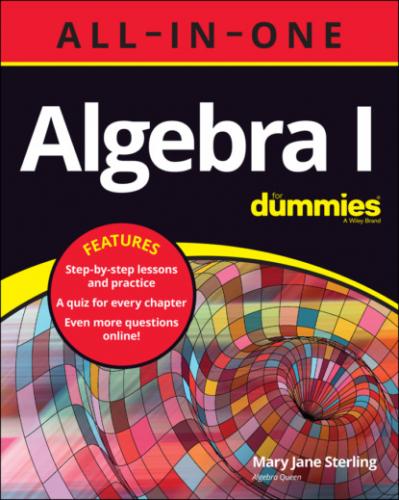617 625
618 626
619 627
620 628
621 629
622 630
623 631
624 632
625 633
626 634
627 635
628 636
629 637
630 638
631 639
632 640
633 641
634 642
635 643
636 644
637 645
638 646
639 647
640 648
641 649
642 650
643 651
644 652
645 653
646 654
647 655
648 656
649 657
650 658
651 659
652 660
653 661
654 662
655 663
656 664
657 665
658 666
659 667
660 668
661 669
662 670
663 671
664 672
665 673
666 674
667 675
Introduction
“ What is algebra?” “Is it really that important in the study of other math courses?” “Where did it come from?” And my favorite question from students: “What do I need this for?”
Algebra is really the basis of most courses that you take in high school and college. You can’t do anything in calculus without a good algebra background. And there’s lots of algebra in geometry. You even need algebra in computer science! Algebra was created, modified, and continues to be tweaked so that ideas and procedures can be shared by everyone. With all people speaking the same “language,” there are fewer misinterpretations.
Algebra, or al-jabr in Arabic, means “a reunion of broken pieces.” How appropriate!
About This Book
This book covers just about everything you’d ever want to know about basic algebra. And it provides opportunities for further discoveries. You’ll find explanations, examples, practice opportunities, and problems to test your comprehension. This book starts with basic operations and terminology, gives you information on simplifying and organizing expressions, runs through equation-solving, introduces applications, and goes visual with the graphing. When finished, you should:
Be familiar with notation and terminology.
Have confidence in finding the correct answer.
Look forward to more challenges with Algebra II and other courses.
Each new topic provides:
Example problems with answers and solutions.
Practice problems with answers and solutions.
Each chapter provides:
A test with problems representing the topics covered.
Solutions to the test problems.
Online quizzes are also available for even more practice and confidence-building.
This book also has a few conventions to keep in mind:
New terms introduced in a chapter, as well as variables, are in italics.
Keywords in lists and numbered steps are in boldface.
Any websites appear in monofont.
The final answers to problems appear in bold. Then the explanation follows.
Foolish Assumptions
You are reading this book to learn more about algebra, so I'm assuming that you have some of the other basic math skills coming in: familiarity with fractions and their operations, comfort with handling decimals and the operations involved, some experience with integers (signed whole numbers) and how they operate, and some graphing knowledge — how to place points on a graphing plane. If you don’t have as much knowledge as you’d like related to some items mentioned, you might want to refer to some resources such as Basic Math & Pre-Algebra For Dummies or Pre-Algebra Essentials For Dummies.
I am also assuming that you’re as excited about mathematics as I am. Oh, okay, you don’t have to be that excited. But you’re interested and eager and anxious to increase your mathematical abilities. That’s the main thing you need.
Icons Used in This Book
You’ll see the following five icons throughout the book:
